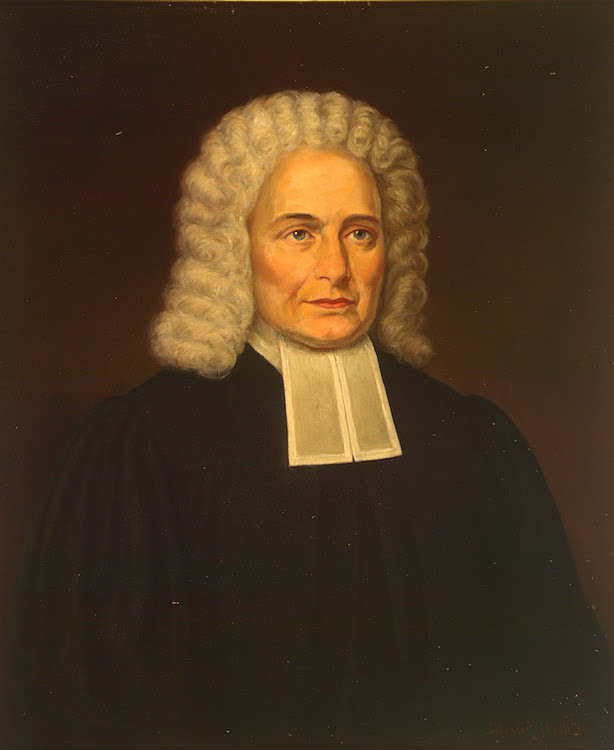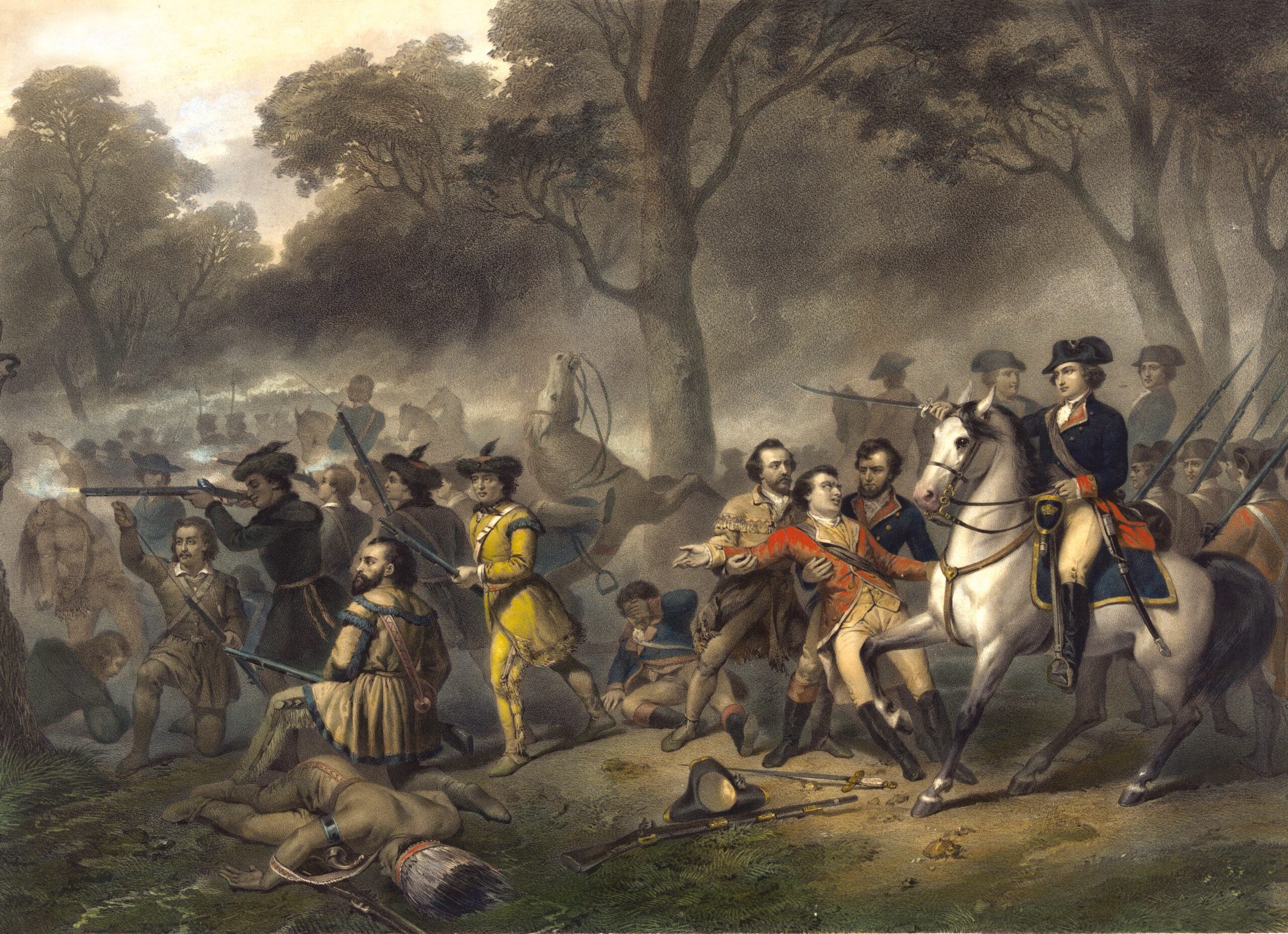
The Rev. Samuel Davies remains one of the most notable ministers in American History during the Great Awakening. Born in 1723, Davies lived a life dedicated to the spread of the gospel eventually serving as pastor to several churches, president of Princeton University, and missionary to the slaves. Eventually he moved to Virginia after becoming one of the first ministers allowed to preach in the colony who was not ordained by the state-supported Church of England. Davies was regarded as a capable and powerful orator and among the members of his congregation was a young Patrick Henry who would later model his own speaking abilities after the example set by Rev. Davies.
When the French and Indian War broke out in 1754, Rev. Davies played a major war in educating Virginians about the conflict and even recruiting men to fight in defense of the colony. In June of 1755, British General Edward Braddock led his army into the western Pennsylvania in hopes of striking a decisive blow against the French positions on the frontier. Among the troops was a young Colonel George Washington who commanded the Virginia militiamen. The attack was a complete disaster and nearly two-thirds of the British army, including Gen. Braddock himself, were killed in an ambush as the French had begun to adapt to the strategies employed by their native allies.
During the battle and the subsequent retreat, Col. Washington distinguished himself by not only his leadership but also by the fact that he was the only British officer not to be wounded in anyway. Throughout the ambush, several horses were shot out from under him and a legend even began in the Indian tribes that Washington was not able to be killed by a bullet. The surviving troops eventually returned and the story regarding Washington’s behavior and protection spread throughout the Virginia colony.
In August 1755, Rev. Samuel Davies gave the following sermon to a group of volunteers as a way of instructing the troops upon their duty as Christian soldiers and to comfort them regarding the terrible disaster of Braddock’s Defeat. As Davies goes through the importance of religion and morality in the military and that they could expect God’s grace and protection if they chose to act piously. In listing the nature and characteristics necessary in a good soldier, Davies pointed to, “that heroic youth Col. Washington, whom I cannot but hope Providence has hitherto preserved in so signal a manner, for some important service to his country” (p. 12).
Unfortunately, Rev. Davies passed away in 1761 at the young age of only 37, meaning he never got to see the fulfillment of his hope regarding Washington who would indeed go on to render important service to his country.
To access a word-searchable version of the document, simply download the pdf file to open the document in a new tab.


